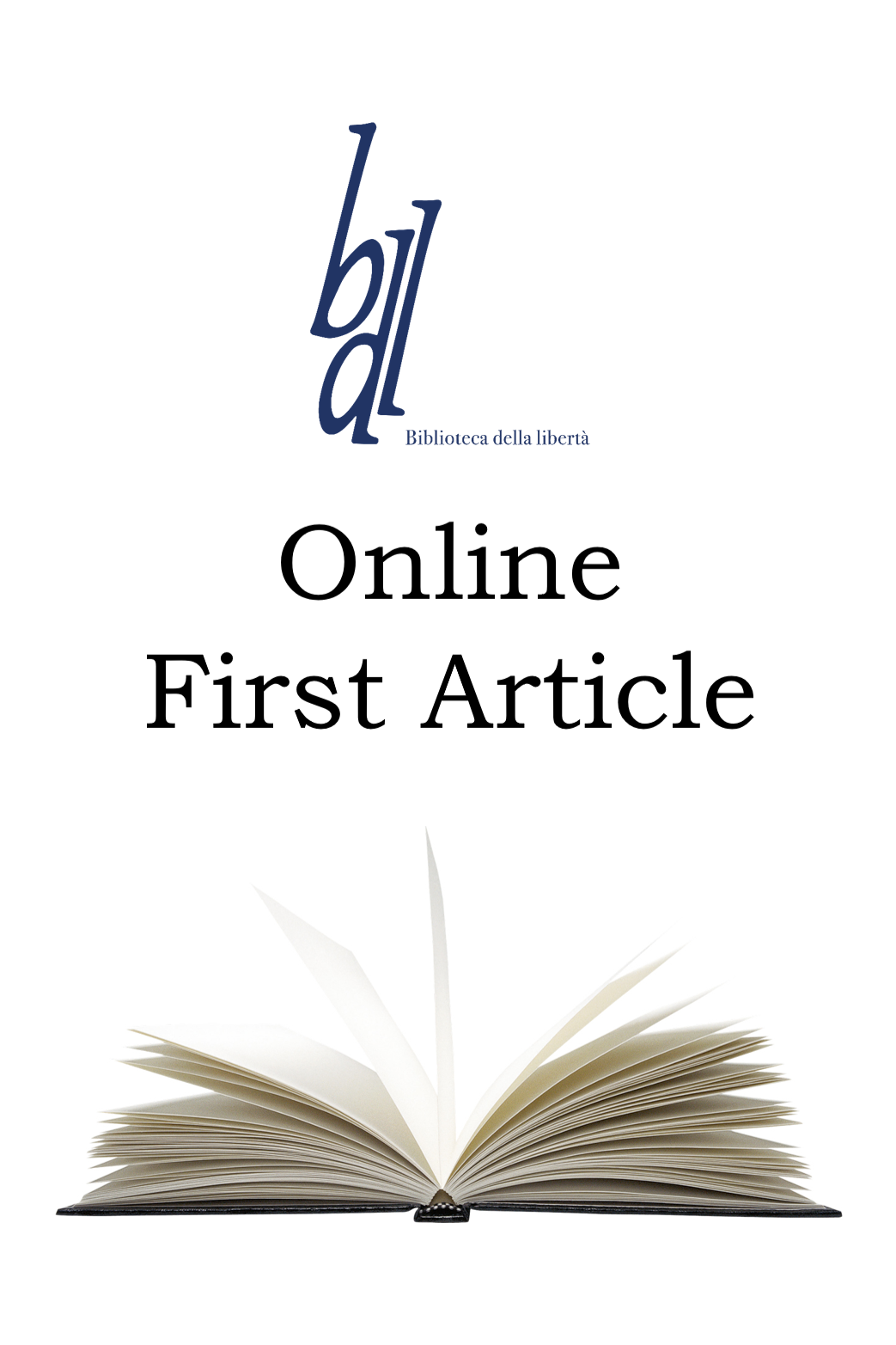- Ricerche e Progetti
- Biblioteca della Libertà
- Pubblicazioni e Working Paper
- Articoli e media
- Eventi e notizie
All issues
Mapping Policy Containment Measures to Sars-Cov-2 Pandemics: At what Conditions Paternalism is Justified
Anno LV, n. 228, maggio-agosto 2020
- Categoria/Category
- Anno LV, n. 228, maggio-agosto 2020
- Autore/Author
- Roberta Sala, Virginia Sanchini
- Editore/Publisher
- Centro Einaudi
- DOI
- 10.23827/BDL_2020_2_9
- Luogo/City
- Torino
- Articolo completo/Full text
- 05-BDL228_Sala_Sanchini.pdf
Abstract
The health emergency originated by the Sars-Cov-2 pandemic has led governments to make decisions aimed at containing the spread of the virus. Insofar as considered, even at different degrees, paternalistic, political governmental decisions in response to the Sars-Cov-2 pandemic have raised harsh disagreement within liberal-democratic societies. In particular, the recall to paternalism has occurred with respect to policies that has been considered as infringing individual personal liberties, thus illegitimate.
Drawing from what above, this paper aims to analyse some containment policies and to discuss them in relation to the philosophical debate regarding political or even legal paternalism. In particular, by adopting Gerald Dworkin taxonomy, we will define these policies in relation to four main types of paternalism – namely: hard or weak, strong or soft.
Despite most of the countries are now facing a second wave of the Sars-Cov-2 pandemic, we will mostly focus on the main contested restrictions on personal freedom, namely those highly affecting personal liberty. We will then explore the connection between the consideration of such policies as paternalistic and the subsequent consideration of the same ones as illegitimate: is it a necessary condition that a paternalistic policy is per se and at any condition illegitimate?
With respect to this question, we will argue that a sort of ‘impure paternalism’ (which calls for the imposition of proportionate means to achieve individual and collective desirable ends) can be considered acceptable insofar as the following five conditions are all simultaneously respected: i) urgency; ii) epistemic uncertainty; iii) proportionality; iv) provisionality; v) compensation measures.







